31 things we learned about Michael Jordan and the 1998 Chicago Bulls in "The Last Dance"
Tyler Lauletta

- "The Last Dance" has come to a close.
- ESPN's 10-part documentary brought basketball fans inside the mind of Michael Jordan in new and revealing ways.
- The series revealed some big moments in Jordan's career, from lifting weights to put on muscle and beat the Pistons to agreeing to sign with Nike at his parents' request.
- Take a look below at 31 nuggets we learned from the series.
- Visit Insider's homepage for more stories.
"The Last Dance" gave basketball fans an inside look at the greatest basketball player of all time.
ESPN's 10-part docuseries on Michael Jordan and the 1998 Chicago Bulls concluded on Sunday, with the Bulls finishing off the Utah Jazz in six games in the 1998 NBA Finals to win their sixth title in eight years and further cement their legacy as one of the greatest dynasties in the history of sports.
Through all 10 episodes, we learned something new about Jordan, whether it be a petty feud he held on to for far too long, or a big decision that would come to impact the future of his career.
Take a look below as we go through the biggest nuggets we learned through watching the series.
Read the original article on InsiderRead more:
Even to this day, Jordan says he still finds it "maddening" that the Bulls didn't try for a seventh title.
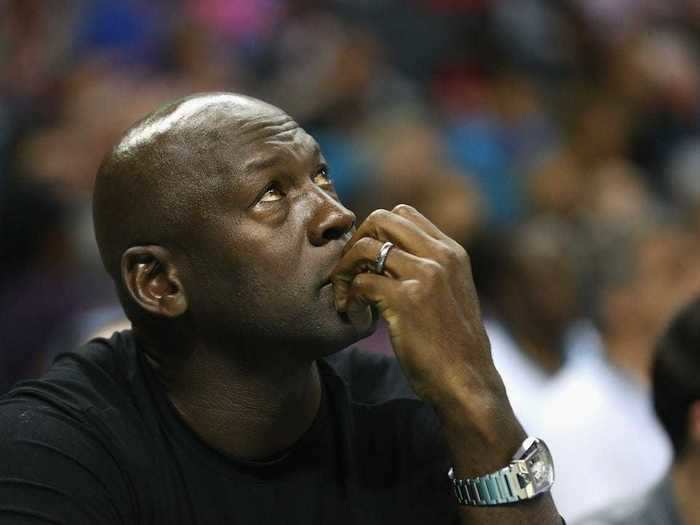
At the start of the 1997-98 season, Bulls general manager Jerry Kraus had already made it clear that he was planning on heading into a rebuild the following season. After the Bulls ran to their sixth title in eight years, he held to the plan — a decision that Jordan is still mad about.
While long-term contracts would have been difficult to manage, Jordan is convinced that the core of the team would have returned on one-year contracts to attempt to win a seventh ring.
"If you asked all the guys who won in 98 … 'We give you one year contract to try for the seventh,' you think they would have signed? Yes, they would have signed," Jordan said.
"Would I sign for one year? Yes, I would sign for one year. I had been signing one year up to that. Would Phil have done it? Yes. Now Pip, you would have had to do some convincing. But if Phil was going to be there. If Dennis was going to be there. If MJ was going to be there to win our seventh, Pip was not going to miss out on that."
Jordan said missing out on the chance to play for a seventh title was "maddening."
"It's maddening because I felt like we could have won seven," Jordan said. "I really believe that. We may not have, but man, just not to be able to try, that's just something that I can't accept, for whatever reason. I just can't accept it."
Jordan wrote a poem for his final goodbye to his teammates after the 1998 season.
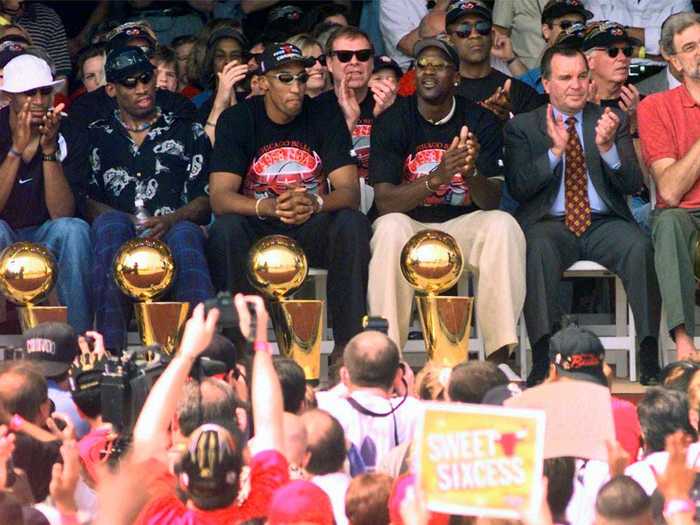
After six titles in eight seasons, Phil Jackson called a final meeting of the Chicago Bulls, inviting players to write down what being on the team meant to them and sharing it with the team.
Jordan wrote a poem.
"We saw him as this bully sometimes," Kerr said. "But that day he showed his compassion and empathy for all of us."
"It was a depth of emotion that you never thought that he had," Jackson added.
Still, Jordan downplayed it all while reflecting on the moment in a sit-down interview for the series.
"I'm not a poet," Jordan said. "I just spoke what I felt at the time."
When the series got to Jordan's iconic final shot with the Bulls, one thing was clear — his teammates knew he wasn't passing.
Jordan's run with the Bulls came to its epic conclusion in Game 6 of the 1998 NBA Finals when he hit the go-ahead shot with just seconds left against the Utah Jazz. Heading into that final possession, Jordan's teammates knew they wouldn't be factors in the play.
"Get the hell out the way," Pippen said in the series, laughing. "'Get the hell out the way' only thing I was thinking."
"I didn't have to do s---," Rodman said. "All I did was plant myself right down there. I knew it. I said, 'He's gonna shoot this f---er.'"
"He is not going pass this f---ing ball," Rodman said. "Whether it was John Paxson, or f---ing Steve Kerr. Hell no. This is his turn."
The moment was likely the emotional highpoint of the series, and director Jason Hehir said it came just 45 minutes into his first on-camera interview with Jordan.
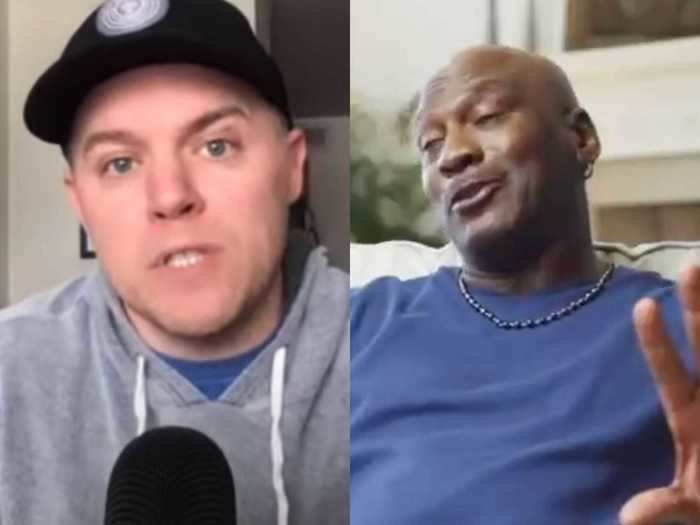
Director Jason Hehir revealed to ESPN's "Jalen and Jacoby" that the intense moment with Jordan came early on in the process of making the documentary.
"That was stunning because that only took place 45 minutes into our first interview with him," Hehir said. "So we're 45 minutes into an eight-hour, year-and-a-half process."
"You can see his expression. I think he was a little bit surprised by the question," Hehir said. "He almost had this look like, 'Well, I think I'm a nice guy, I don't know.' And then he started to get more and more intense. And by the end of that — I mean it's 45 minutes into the first interview — he was tearing up."
Jordan did his best to answer for his harsh treatment of teammates, saying 'That's how I played the game.'
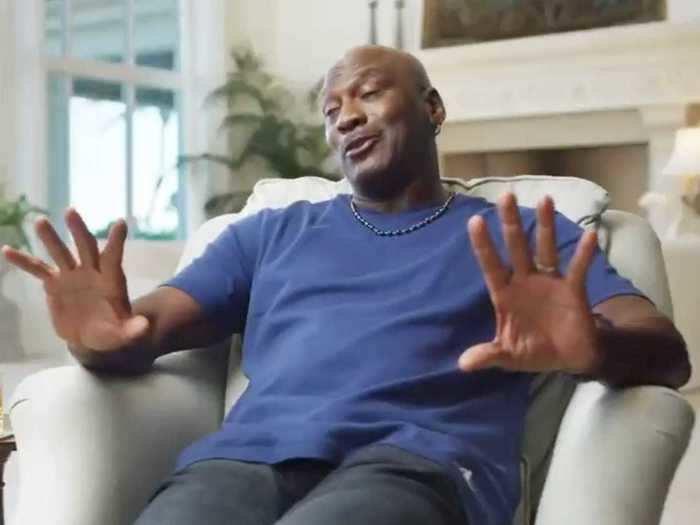
In episode seven of "The Last Dance," Jordan had been shown as an aggressive competitor during Bulls' practices, laying into teammates Scott Burrell and Steve Kerr in practices, whether through name-calling or outright bullying.
During the final moments of the episode, Jordan explained himself.
"When people see this, they're going to say 'Well, he wasn't really a nice guy, he may have been a tyrant,'" Jordan said. "Well, that's you, because you never won anything. I wanted to win, but I wanted them to win and be a part of that as well."
"I don't have to do this. I'm only doing it because it is who I am," Jordan said, getting choked up. "That's how I played the game. That was my mentality. If you don't want to play that way, don't play that way."
Jordan then called for a break from the interview, at which point the series cut to the credits.
Jordan's intensity was put into focus in episodes seven and eight of the series, with his teammates even opening up about fearing him at practices.
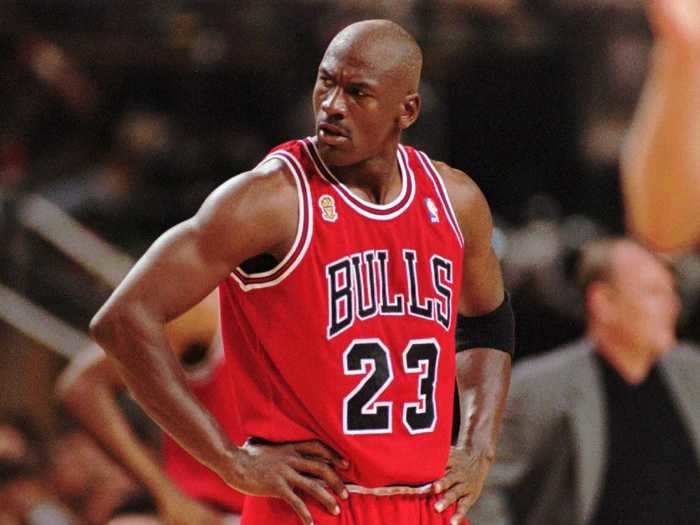
Jordan and the Bulls' six titles in eight years didn't come without cost. In the later episodes of the series, several of Jordan's teammates said they were outright afraid of his intensity after tough games.
"Every time we played good and were winning games, everything was OK," former Bulls forward Toni Kukoc said. "But everybody was always on alert around Michael after a bad game."
"People were afraid of him. We were his teammates, and we were afraid of him!" former forward Jud Buechler said. "It was just fear."
Just ahead of the 1996 Finals, Sonics coach George Karl didn't say hello to Jordan while the two were dining at the same restaurant. Jordan decided to use the snub as a slight and went on to crush Seattle.
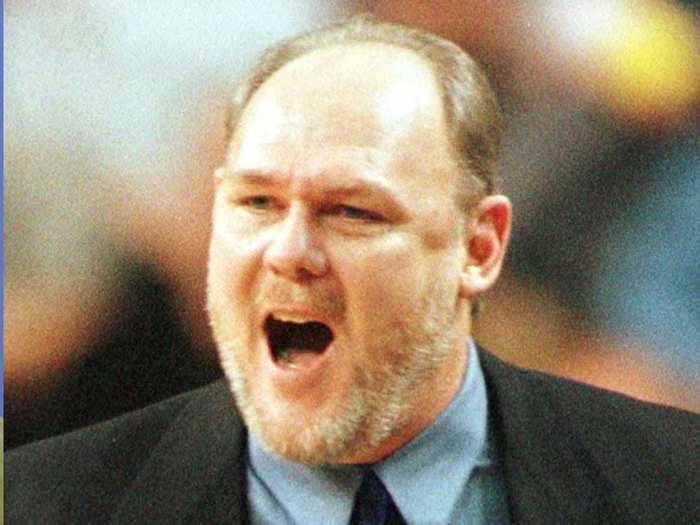
No slight was too small for Jordan.
As the series revealed, a chance encounter with Sonics head coach George Karl ahead of the 1996 Finals set Jordan off, prompting him to tear into Seattle to start the series.
Karl and Jordan had been at the same restaurant just before the series tipped off. Rather than engaging in a bit of friendly banter, Karl refused to acknowledge Jordan.
"He walked right past me," Jordan said. "I said, 'It's a crock of s---.' We went to Carolina. You know Dean Smith ... You're gonna do this? Okay fine. That's all I needed. That's all I needed — for him to do that — and it became personal with me."
Jordan's minor league baseball manager, Terry Francona, claimed that with a few more years of focus, Jordan could have made the majors.
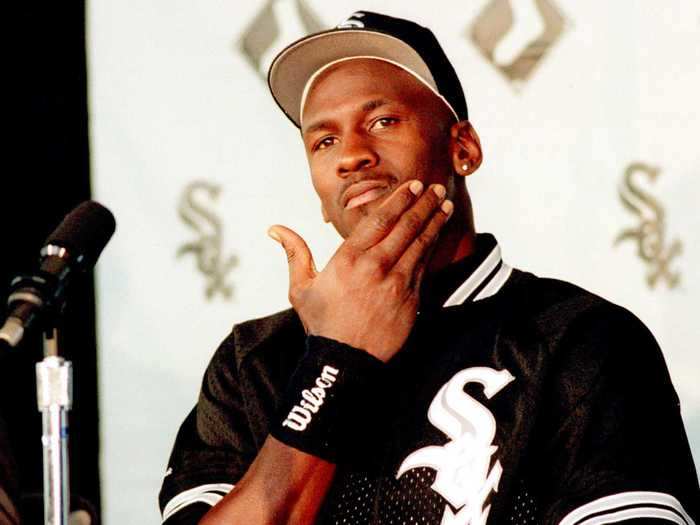
Terry Francona, who managed Jordan with the Birmingham Barons in 1994 before jumping to the majors to manage the Phillies, Red Sox, and now Cleveland Indians, told "SportsCenter" that both Jordan's ability as an athlete and his refusal to accept defeat proved he was cut out for major league baseball.
"If he had been willing to commit three years, I think he would have found his way to the major leagues, I really believe that," Francona told ESPN's Scott Van Pelt.
"One, because of some of the tools he had, but the other one and maybe more important, and I found out first hand when you tell Michael 'no,' he finds a way to make the answer be 'yes.' And it doesn't matter what you're doing, he's really good at that."
Jordan revealed that the last conversation he had with his father was about his desire to leave basketball and play baseball.
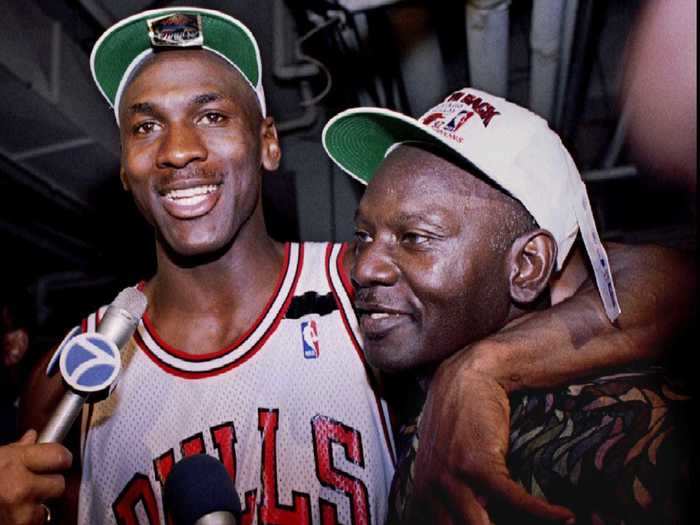
In episode seven of "The Last Dance," Jordan revealed that the final conversation he had with his father was about his decision to leave the NBA to pursue a career in baseball.
"We were debating, me and him, we were debating about me playing baseball," Jordan said. "'I wanna go play baseball. I'm thinking about retiring and I wanna go play baseball.' And... he was saying 'Do it, do it' because he got me started in baseball."
"It was always his father's dream that he be a baseball player, and so I didn't try to talk him out of it," said Bulls owner Jerry Reinsdorf, who also owned the Chiacgo White Sox, thus easing Jordan's transition. "But I said to him 'playing baseball is a lot harder than you think it is.'"
While fans around the world were enthralled with "The Last Dance," some of Jordan's former rivals, such as Patrick Ewing, weren't as amused.
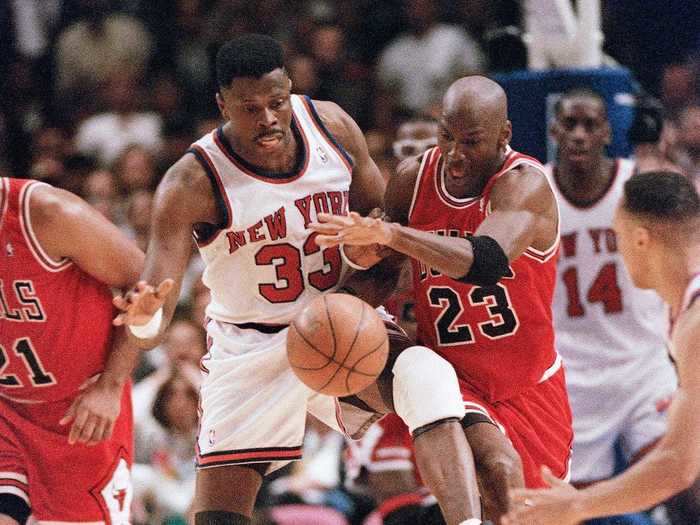
Speaking with "The Dan Patrick Show," Knicks legend Patrick Ewing said he was not enjoying the documentary.
"I had to live through that," Ewing said. "I had to live through him and all the battles we had to go through, and now y'all have a documentary that you have to keep rubbing it in my face."
Ewing said he understood the world's embrace of the series, but that for the players that competed against Jordan, he's seen through a different frame.
"As fans, people are in awe of him," Ewing said. "But we're the ones that had to battle him. As a competitor, you can't think of him as 'Michael Jordan: one of the greatest players to ever play the game.' You're out there trying to kick his butt, and you and your team are trying to do everything possible to try to beat that team."
Jordan's deal with Nike is still a force in the market, and the value some of his older shoes are skyrocketing.
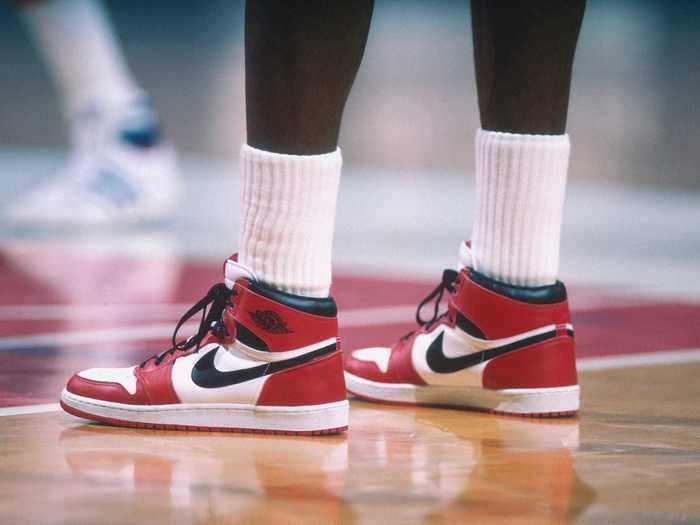
Jordan isn't the only one making money off of his shoes.
After being featured prominently in one episode of "The Last Dance," resale prices for the Air Jordan 1 "Chicago" doubled.
"That sneaker started a revolution, it sparked a fire that even 35 years later still burns bright," Paul Barber, a sneaker artist, and collector from the UK told CNN. "The Jordan 1 is symbolic."
But despite Nike's huge offer, Jordan was still drawn to Adidas, and even reached out to the company hoping they'd match the deal.
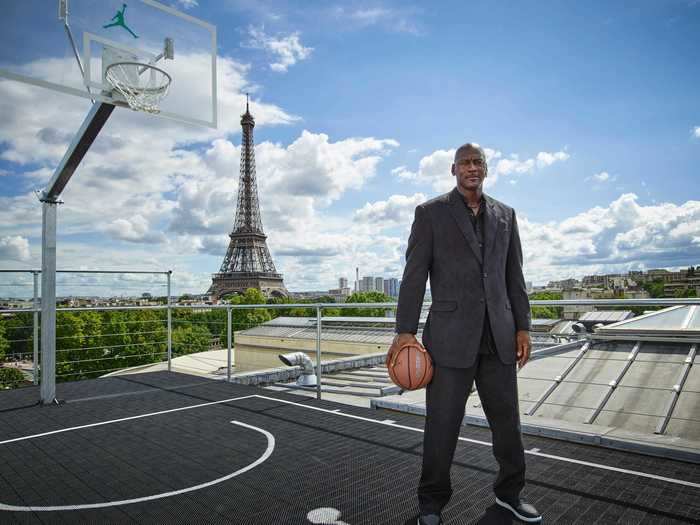
As "The Last Dance" director Jason Hehir told Insider, Jordan was so eager to make a deal with Adidas that he returned to them after Nike's impressive offer hoping they would match.
"He himself went back to Adidas after he got the offer from Nike and said, 'Are you sure?'" Hehir said. "Because if they would match the deal, he was going to go with them. He really wanted to go with Adidas."
While Jordan's partnership with Nike is now worth billions, it almost didn't happen, as he had initially hoped to sign with Adidas until his parents forced him to reconsider.
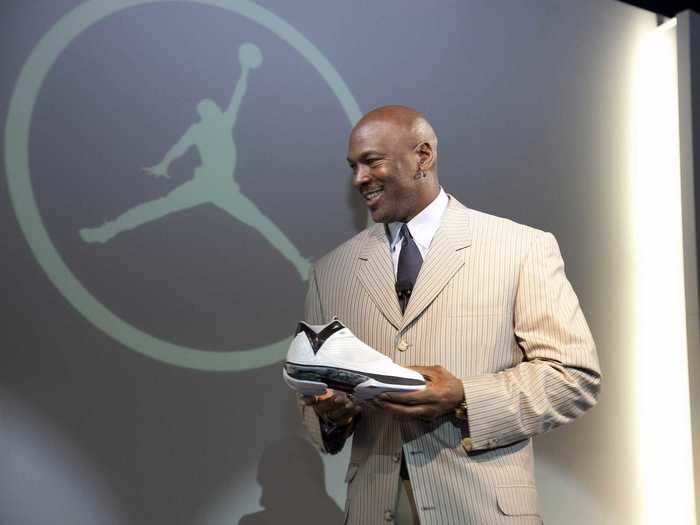
"My mother said, 'You're going to go listen. You may not like it, but you're going to go listen,'" Jordan said. "She made me get on that plane and go listen."
Nike had offered Jordan $500,000-a-year deal for five years, as well as his signature shoe, the Air Jordan, something that Adidas was not prepared to do.
"Nike made this big pitch," Jordan said, adding that his father told him, "You'd have to be a fool, not taking this deal. This is the best deal."
Thirty-six years and $1.3 billion later, it's pretty clear Jordan's parents pointed him in the right direction.
Jordan really did say, "Republicans buy sneakers too."
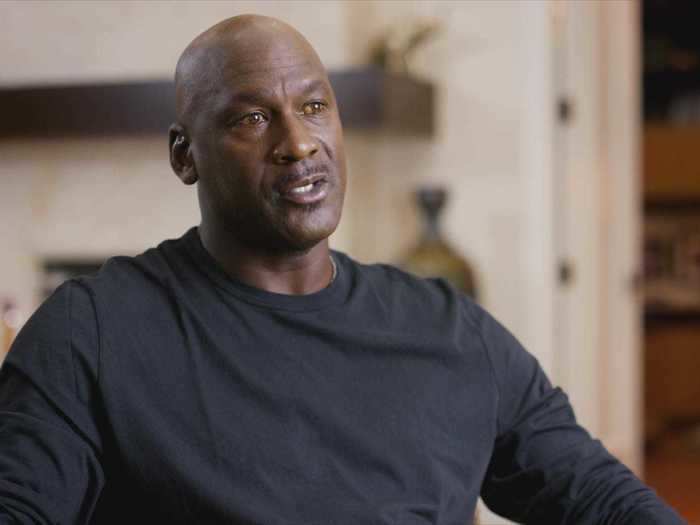
Jordan finally addressed one of the most famous quotes ever attributed to him: "Republicans buy sneakers too." The refrain was used as his reasoning for why he didn't speak out on more political issues during his playing career, although the origins of the quote, and whether or not he had ever uttered the phrase, were somewhat murky.
Jordan was asked if the statement needed to be corrected, and he stood by the comment, which he said was made as a throwaway joke to his teammates.
"I don't think that statement needs to be corrected," Jordan said of the infamous line. "Because I said it in jest on a bus with Horace Grant and Scottie Pippen — it was thrown off the cuff."
Jordan said that while he respected other athletes for taking public political stances, the idea didn't appeal to him.
"I do commend Muhammad Ali for standing up for what he believed in," Jordan said. "But I never thought of myself as an activist. I thought of myself as a basketball player. I wasn't a politician when I was playing my sport. I was focused on my craft. Was that selfish? Probably. But that was my energy. That's where my energy was."
Even off the court, Jordan's competitiveness was legendary. According to Barkley, Jordan would play poker every night during the Dream Team's run, often trying to buy the pot with his outsized wealth.
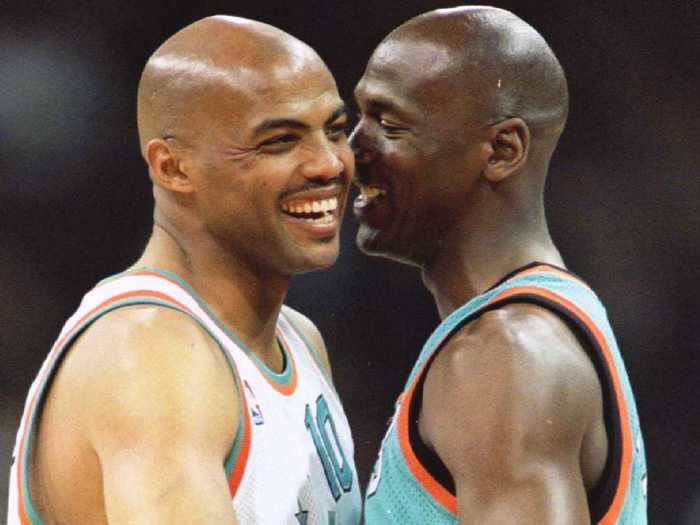
Jordan was already known for his obsessions with competition and gambling well before "The Last Dance." Still, the series gave viewers a clearer understanding of how those obsessions manifested themselves during Jordan's playing days.
Barkley said that during the team's Dream Team run, Jordan refused to go a night without playing cards.
"Every night — not one night, not two nights, not 10 nights — me, Magic, Scottie, and [Michael Jordan] played cards every single night," Barkley told Scott Van Pelt on SportsCenter. "Michael tried to buy the pot every single night. It was really awesome."
Barkley said that given the amount of money that Jordan had, he never stood much of a chance against him.
"Me and Scottie don't have as much money as Michael and Magic, but we knew that no matter what the cards were, at the end of the night like three or four times a night, Michael was always going to try to buy the pot," Barkley said. "And just like [Jordan] always says, 'What's your breaking point of going all in?'"
Playing against Jordan was always a revelation, even for some of the best players of that generation. Charles Barkley said Michael Jordan was the first person to make him realize he wasn't the best basketball player on Earth.
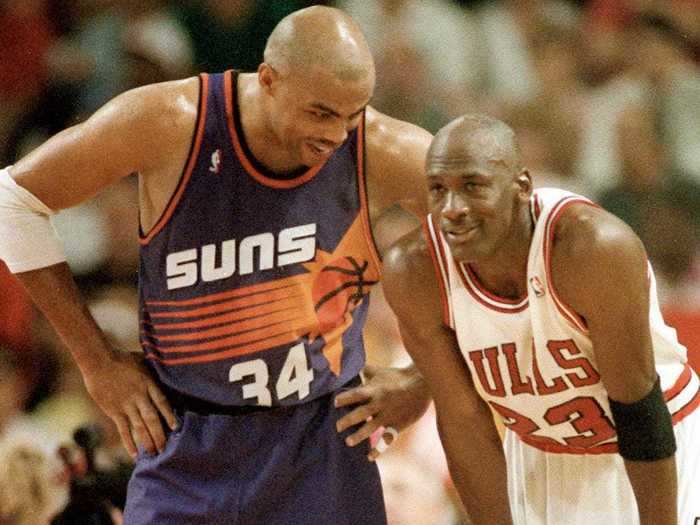
At the start of Jordan's career, there were plenty of all-time great players already playing in the NBA. Still, once Jordan ascended to his potential and began winning championships, he put himself a level above the competition.
Speaking with ESPN's Scott Van Pelt, Barkley said that playing against Jordan in the 1993 Finals was the first time he realized he wasn't the best basketball player alive.
"In Game 2, I played as well as I could play, and Michael just outplayed me," Barkley said. "That was probably the first time in my life that I felt like there was a better basketball player in the world than me, to be honest with you."
Kobe Bryant, who passed away in a helicopter accident in February 2020, was shown in the documentary praising Jordan, crediting advice he gave in helping him become a legend in his own right.
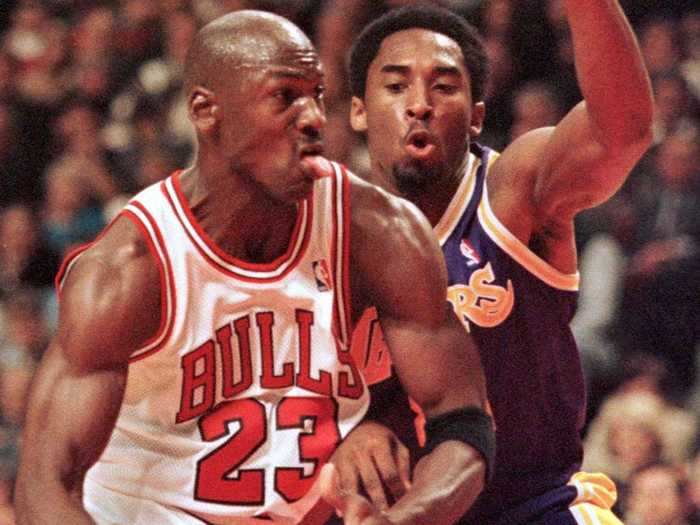
One of the most emotional moments of the series came when Kobe Bryant appeared on camera. The Lakers legend died in February in a helicopter crash.
Bryant credited advice he got from Jordan for helping him turn into the legendary player he would become.
"What you get from me is from him," Bryant said. "I wouldn't get five championships here without him because he guided me so much and gave me such great advice."
Bryant said that Jordan was looking out for him even before he was considered one of the greats.
"Nobody was really thinking much of me. I was the kid that shot a bunch of airballs," Bryant said. "At that point, Michael provided a lot of guidance for me."
"I had a question about shooting his turnaround shot so I asked him about it," he added. "He gave me a great, detailed answer, but on top of that he said 'If you ever need anything give me a call.'"
After losing to Detroit in the playoffs in three straight seasons, Jordan put on 15 pounds of muscle over the summer so he could hang tough with the Pistons.
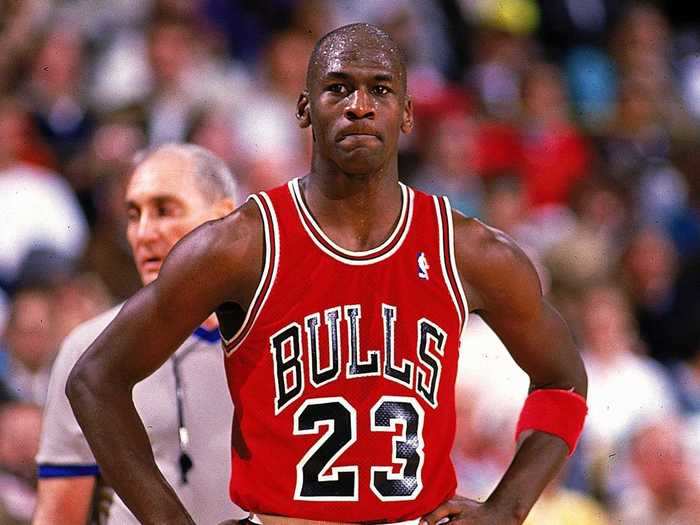
While Jordan's natural ability as an athlete got him a long way in life, it couldn't get him past the Detroit Pistons in the early years of his career. After falling to Detroit in the playoffs in three straight seasons, Jordan committed to putting on some muscle and gained 15 pounds over the summer of 1990.
"I was getting brutally beaten up," Jordan said in episode four of the series. "And I wanted to administer pain. I wanted to start fighting back."
Jordan's trainer, Tim Grover, said Jordan would always push himself further than asked.
"I would give him a certain amount of reps to do, but he would never stop at that number," Grover said. "If I asked for six, I knew he was gonna do 12."
The subject of a documentary getting the final say on topics may not be best practiced as a rule. Still, it did provide Jordan with some hilarious opportunities to respond to the comments of others, such as Gary Payton.
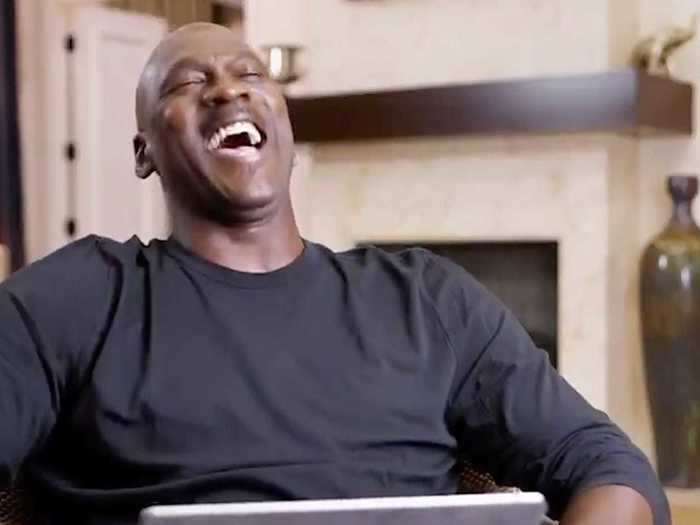
Gary Payton gave himself a good amount of credit for the way he covered Jordan in the 1996 NBA Finals.
"A lot of people backed down to Michael. I didn't," Payton said. "I made it a point, I said, 'just tire him out, tire the f--- out of him.'"
Payton said that he wished he had switched to guarding Jordan earlier in the series, believing that he could have possibly swung the Finals. Payton said his physical defense "took a toll" on Jordan.
Jordan was shown the interview on a tablet and busted out laughing. "The Glove," Jordan said, jokingly referring to Payton's nickname. "I had no problem with The Glove."
One of the conditions of producing the documentary was that Jordan would get the final say on any topic.
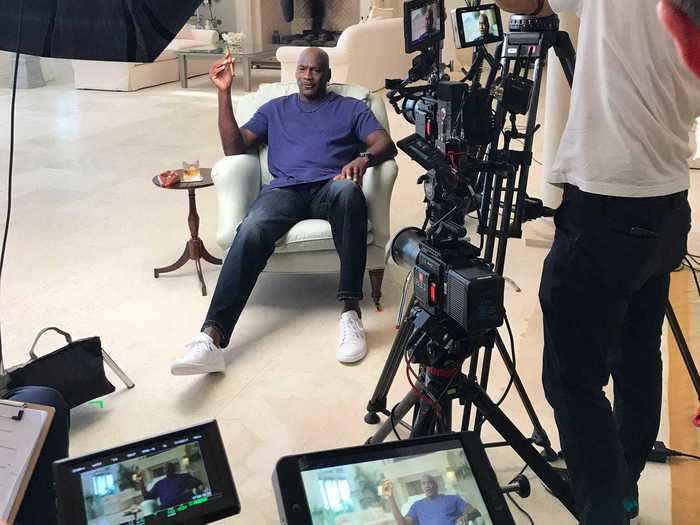
While his 1998 season was the focus of the documentary, current-day Jordan loomed over the entire production. The footage used to cover much of the behind-the-scenes moments from the '98 season was only able to be used with Jordan's approval.
Further, Jordan had the final say on any topic he wanted.
"One of his stipulations was that he wanted the last word," Jason Hehir, director of "The Last Dance," told Insider about Jordan's involvement in the doc. "He didn't want his words to be twisted around."
Hehir said that while Jordan gave notes on episodes, it was only because he knew the story.
"One of your questions may be, 'Did Jordan have final cut on this?'" Hehir said. "He gave notes on episodes, but he didn't give any more notes than any of the other partners did. And oftentimes, his notes were just as good if not better than the other partners because he knew what the truth was."
Even to his teammates, Jordan was an enigma. But when the Bulls won their first title, Jordan's emotional reaction showed the rest of the team that he was human.
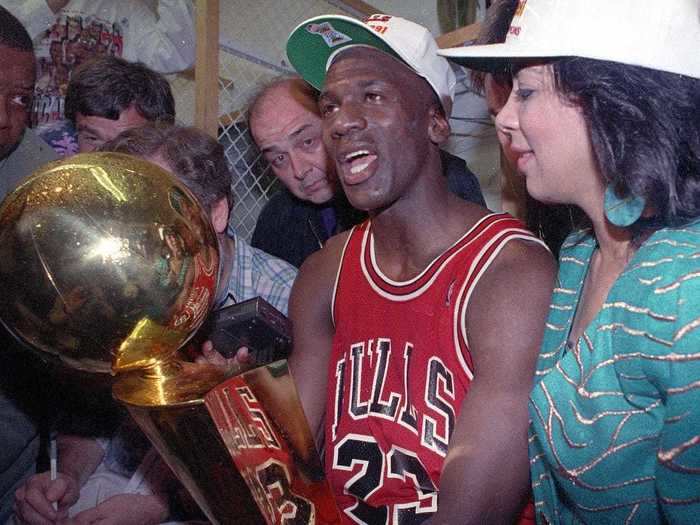
Former Bulls center Will Perdue said that Jordan didn't express many emotions on the team, with his sole focus being on winning.
"That's who we knew: the competitive Michael Jordan. The win-at-all-costs Michael Jordan." Perdue said. "Sometimes we'd question whether he was human, whether he had feelings. He was just a guy that was focused on one thing and one thing only. The only emotion we'd seen out of him was anger or frustration."
But after the Bulls won their first title, the flip switched. Jordan showed he was, in fact, human.
"We were literally stunned to see those emotions," Perdue said.
But despite his eccentric interests sometimes taking him away from the court, few players worked harder than Rodman. It's possible no player in history was more committed to securing rebounds.
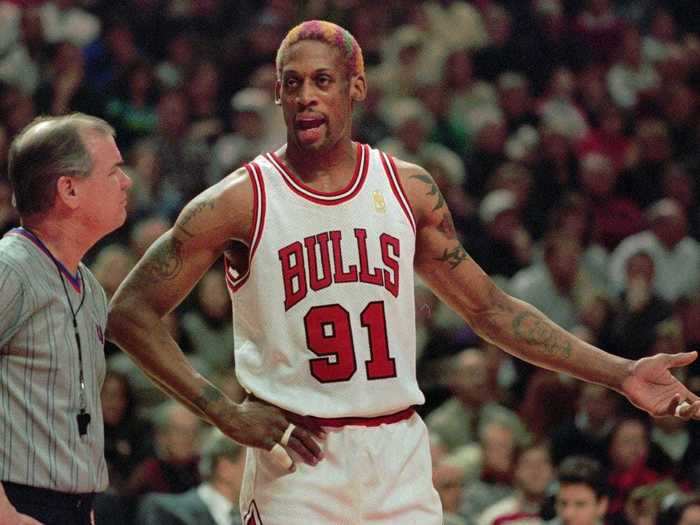
Rodman may have been a wild card, but his commitment to being the best rebounder in the league was real. Rodman opened up about long nights spent tracking the angles and trajectory of different shots so he could always know where to position himself under the basket.
"I used to have my friends late at night — s--t, three, four in the morning — go to the gym and I said 'shoot the ball,'" Rodman said. "'Shoot over here, shoot over here, shoot over there, shoot over there. I'd sit there and react, react."
"I just practiced a lot about the angle of the ball and the trajectory of it," Rodman said. "Basically I just started learning how to put myself in a position to get the ball."
Eventually, Rodman was able to base his positioning not just the shot, but the person shooting the ball.
"You got a Larry Bird; it's gonna spin," he said. "You got a Magic [Johnson]; there may be spin. When [Jordan] shoots over here, I position myself right there."
When Rodman made it back to the team, he was put to work, with Jackson leading the Bulls through some intense drills to get him back into playing shape.
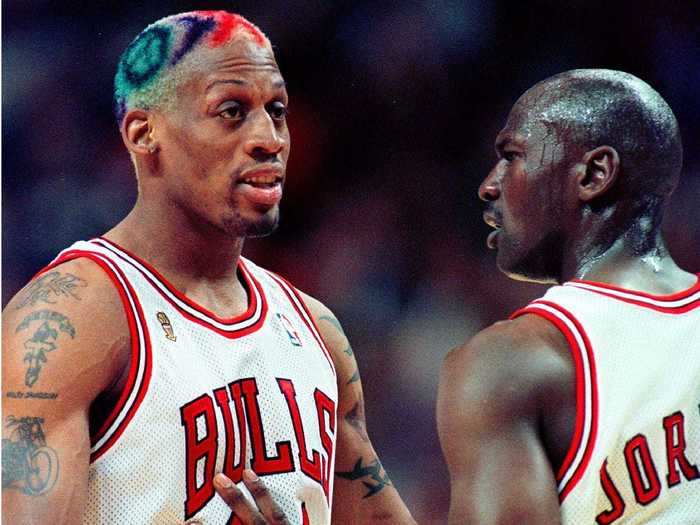
After Rodman's misadventures in Las Vegas, head coach Phil Jackson put him to work, and made the whole team pay. The Bulls went through a series of intense conditioning drills to get Rodman back into shape.
Rodman's teammates didn't really appreciate the extra hustle they were being asked to contribute.
"So I'm saying, 'Well f---, this is kind of messed up,'" Jordan recalled. "Because now I'm getting caught up in the Dennis get-in-shape drill when in essence, I hadn't taken a vacation."
Dennis Rodman was the star of the second night of "The Last Dance," with the series recounting the story of Jordan's mission to retrieve Rodman from an impromptu mid-season vacation.
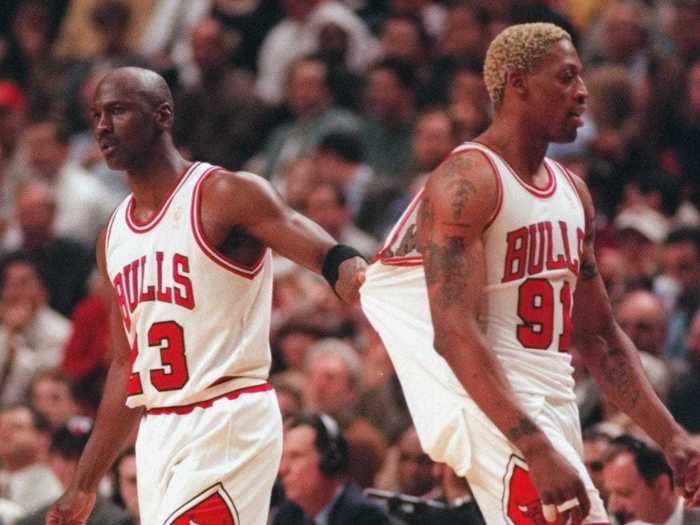
After the return of Scottie Pippen in the middle of the 1997-98 season, Dennis Rodman went to head coach Phil Jackson and said he needed a vacation. Rodman came to an agreement of a 48-hour break in Las Vegas.
When his 48 hours was up, Jordan and the Bulls realized Rodman might need a little extra encouragement to bring him back to the team, so he went to get him himself.
"He didn't come back on time," Jordan said in the series. "We had to go get his ass out of bed."
Jordan found Rodman with his girlfriend Carmen Electra, who recounted the rest of the story.
"There's a knock on the door; it's Michael Jordan," Electra said. "I hid. I didn't want him to see me like that, so I'm just hiding behind the couch with covers over me."
During his interviews for "The Last Dance," Jordan was never seen without a glass of liquor next to him. As it turns out, Jordan's drink of choice was his own brand of tequila that goes for as much as $1,800 a bottle.

After Jordan's drink quickly became the subject of speculation across the internet, ESPN's Romana Shelburne was able to provide the world with an answer.
Jordan was sipping on Cincoro — a tequila brand he co-owns with Los Angeles Lakers, Boston Celtics, and Milwaukee Bucks owners.
The Cincoro website describes extra añejo as "a very rare tequila produced in limited allocations" that is "aged in used American bourbon barrels" for more than three years to produce "subtle notes of wood, spices, and light cooked agave on the nose followed by intense oak, sweet agave, caramel, and light vanilla on the palate."
Jordan talked about passing on the party culture of the Bulls' 'traveling cocaine circus' in his rookie season.
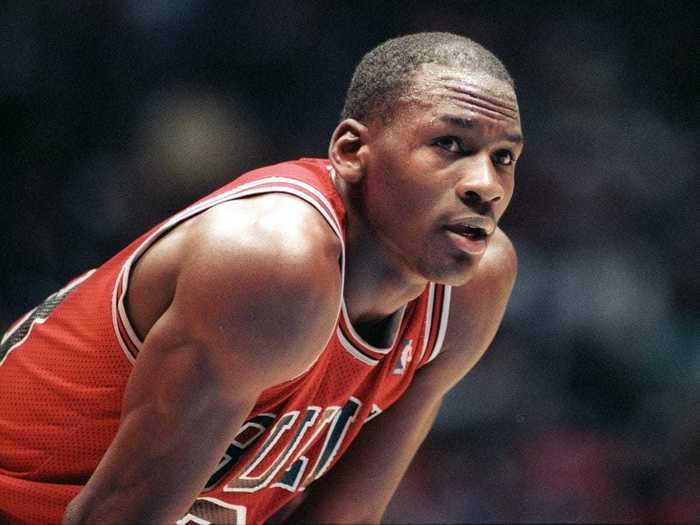
Jordan let out a howl of laughter when asked about the "traveling cocaine circus" of the Chicago Bulls but went on to give some credence to the name, recounting a story from his rookie season.
"I get to this one door, I knock on the door, and I could hear someone say, 'Shhh, someone's outside,'" Jordan said. "This deep voice says, 'Who is it?' I say it's MJ, and they say, 'Ah, f---, he's just a rookie. Don't worry about it.'"
"I walk in, and practically the whole team is in there. It was things I had never seen in my life as a young kid. You got your lines over here. You got your weed smokers over here. You got your women over here."
Jordan decided it was best not to join the party.
"First thing I said, 'Look, man, I'm out.' Because all I could think about is, if they come raid this place right now, I am just as guilty as everyone else in this room," Jordan said.
In the first two episodes of "The Last Dance," former President Barack Obama made an appearance that included a hilarious chyron.
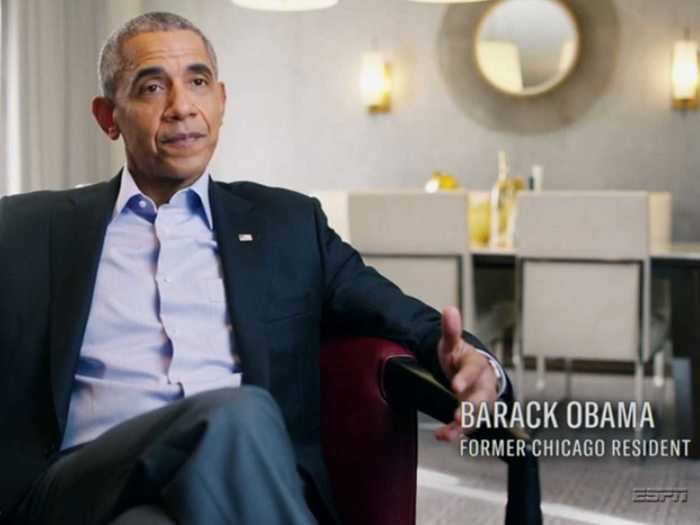
While Obama is "former President Barack Obama" for most speaking engagements when commenting on Jordan, "The Last Dance" listed his credentials as simply "former Chicago resident."
Twitter had a field day with the joke.
Jordan earned praise throughout the documentary, with legendary commentator Mike Breen saying he carried himself with a "mystique," the likes of which he had rarely seen.
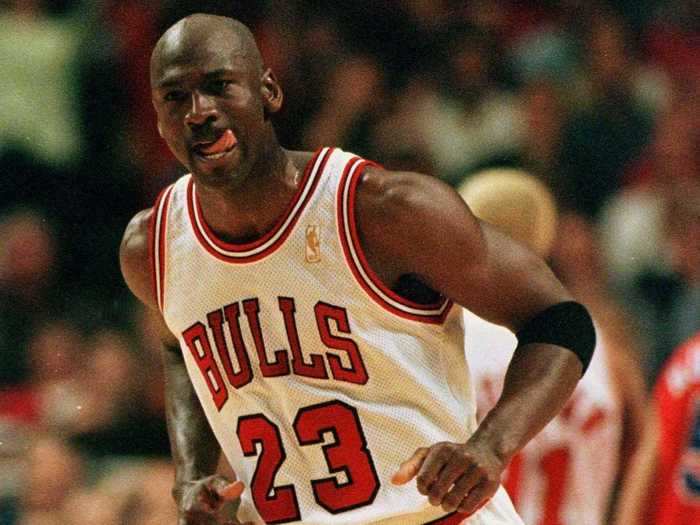
"There's only been a handful of players where — you hear the phrase, 'I'm in awe of somebody.' You were in awe when you saw him in person," Breen said. "As great as he was on television, when you saw the way he carried himself, you saw the way he stared at an opponent, it was intimidating. There's only been a handful of players that have this mystique for me, in almost 30 years doing this."
We also learned how close that iconic performance was to never happening.
Jordan's epic 63-point performance against the Celtics likely would have never happened in today's NBA. Given the importance of keeping players healthy in the long run, the idea that a superstar of Jordan's potential would risk injury to play in a playoff series for an eighth-seed team widely expected to lose is unfathomable in the current game.
ESPN's Zach Lowe argued that the game wouldn't have happened in the modern NBA, and Steve Kerr, Jordan's former teammate and current head coach of the Golden State Warriors, agreed.
"I wonder if today there would have been a 0% chance that Michael plays in the playoffs that year," Lowe said. "Don't you think? There's just no way an eighth seed is going to let him on the court."
Kerr agreed, telling Lowe "Yeah, no way. Different time, different era, for sure."
Jordan's abilities to hold a grudge and call his shots were both well documented throughout the series, like the time he went off for 63 points after losing a round of golf to Danny Ainge.
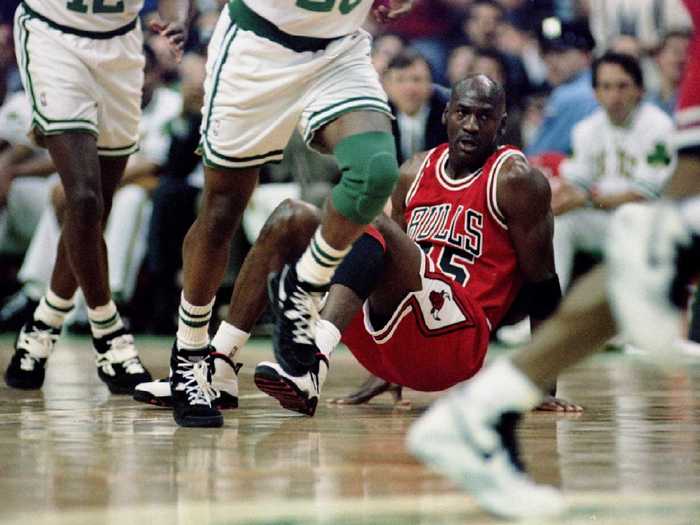
Before Game 2 of the Bulls' first-round series against the Celtics in 1986, Jordan and Danny Ainge played a round of golf together, with Ainge coming out the victor.
Jordan responded by putting up 63 points in Game 2.
"I talked some trash to him that day," Ainge said during a sit-down interview for the series. "That might have been a mistake."
As the series would go on to show, Ainge would not be the last person to regret some comments made towards Jordan.
Early in his career, Jordan showed just how far he was willing to go to play and win, offering a classic response when asked to sit due to what could have become a career-ending injury.
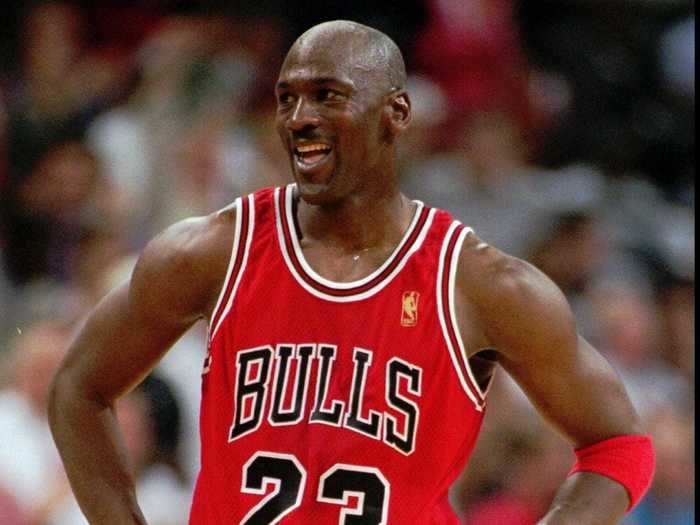
Before Jordan was a basketball superstar with six championship rings, he was a young player ascending to greatness in the NBA. In his second season with the Bulls, Jordan wanted to play through an injury that doctors said had a 10% chance of ending his career.
Jordan responded to the issue in a way that gave a glimpse of the player he would become.
"It's 10%, but a 90% I won't [get injured] ... While I think the glass is half-full, everybody thinks the glass is half-empty," Jordan said in the documentary.
"I said to Michael, 'You're not understanding the risk-reward ratio,'" said Bulls owner Jerry Reinsdorf. "If you had a terrible headache, and I gave you a bottle of pills, and nine of the pills would cure you and one of the pills would kill you, would you take a pill?"
Jordan responded: "Depends on how f---ing bad the headache is."
READ MORE ARTICLES ON
Popular Right Now
Popular Keywords
Advertisement